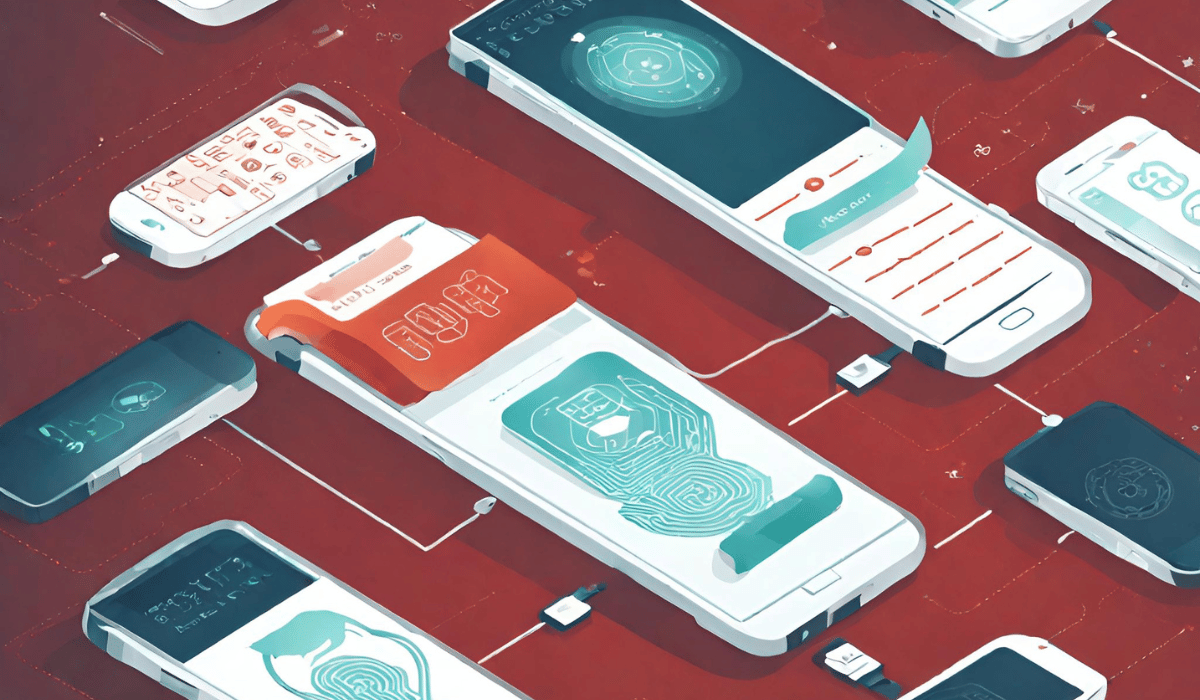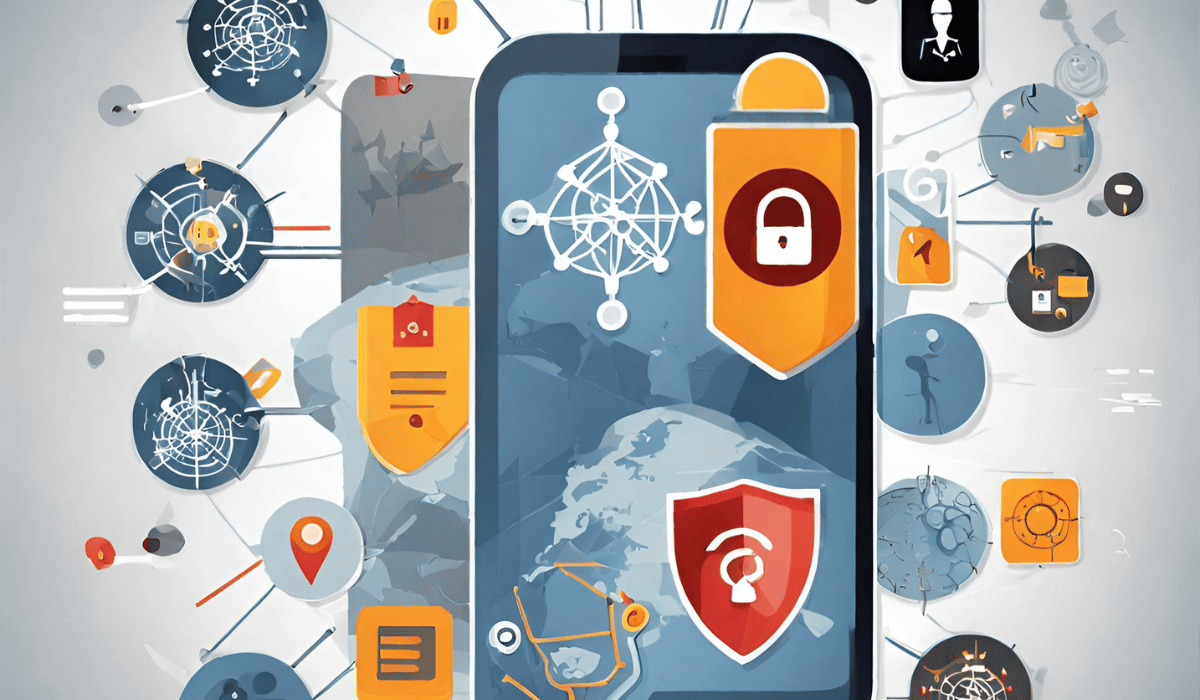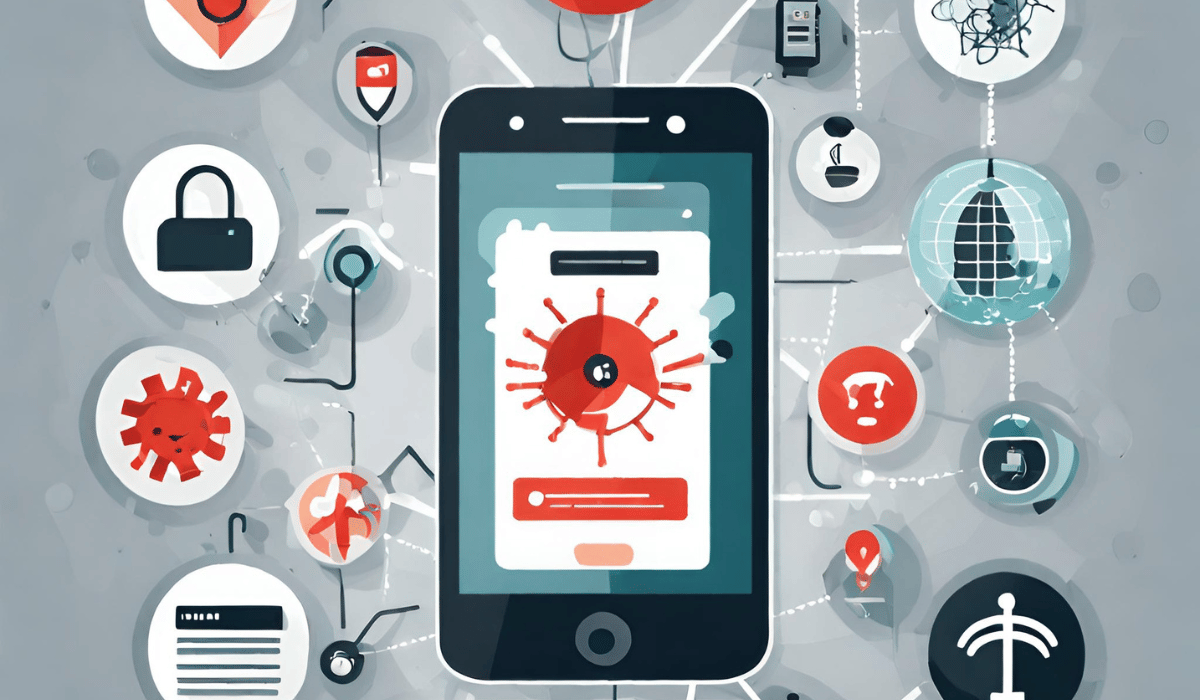Explanation of Encryption Phones

Encryption phones are mobile devices that use advanced security features to protect the privacy and security of their users. They typically use strong encryption algorithms to scramble data and communications, making it difficult for unauthorized users to intercept or access sensitive information. Encryption phones may also offer additional security features such as biometric authentication (e.g. fingerprint or facial recognition), secure messaging apps, and remote wipe capabilities to protect against theft or loss.
Importance of Data Protection
Data protection is crucial in today’s digital age where personal and sensitive information is constantly being shared and stored online. Without proper data protection measures, this information can be easily accessed and exploited by cybercriminals, leading to identity theft, financial fraud, and other serious consequences. Data protection also plays a significant role in maintaining the trust of customers and clients. Businesses that prioritize data protection demonstrate their commitment to safeguarding their customers’ information and are more likely to attract and retain loyal customers.
How Encryption Works?
Encryption is a method of encoding information so that it can only be read by authorized parties. It involves using a mathematical algorithm to convert the original data into a coded form, which can only be decoded with a specific key or password. When data is encrypted, it becomes unreadable to anyone who does not have a key or password. This means that even if a hacker gains access to the encrypted data, they will not be able to read it without the key or password.
Types of Encryption Used in Phones
There are several types of encryption used in phones to protect data. One of the most common is called AES (Advanced Encryption Standard), which is a symmetric encryption algorithm that uses a single key to encrypt and decrypt data. Another type of encryption used in phones is RSA (Rivest-Shamir-Adleman), which is an asymmetric encryption algorithm that uses a public key to encrypt data and a private key to decrypt it.
Advantages of Encryption Phones
Encryption in phones offers several advantages, including:
1. Data protection: Encryption ensures that data stored on the phone is protected from unauthorized access. This is especially important for sensitive information such as personal data, financial information, and confidential business data.
2. Secure communication: Encryption also helps to secure communication between devices and networks. This means that any data transmitted over the phone, such as emails, text messages, and phone calls, are protected from interception and hacking.
Overview of Mobile Data Threats

Mobile devices face a variety of threats to the security of their data. These threats include malware, phishing attacks, network spoofing, and physical theft of the device. Malware can be introduced to a device through malicious apps or through vulnerabilities in the operating system. Phishing attacks can trick users into revealing sensitive information through fake websites or emails. Network spoofing can allow attackers to intercept and read data transmitted over unsecured Wi-Fi networks.
How Encryption Phones Protect Data?
Encryption phones use advanced encryption technology to protect user data from these threats. Encryption is the process of converting plain text into ciphertext, which can only be read by someone with the key to decrypt it. Encryption phones use strong encryption algorithms to encrypt all data stored on the device, as well as data transmitted over the network. This means that even if an attacker gains access to the device or intercepts data transmitted over the network, they will not be able to read the encrypted data without the decryption key.
Encrypted Communication
Encrypted communication is a method of securing communication between two parties by encrypting the data being transmitted. This is done using encryption algorithms that make it very difficult for anyone other than the intended recipient to read the message. Encrypted communication can be achieved through various methods, such as using a virtual private network (VPN), secure messaging apps, or email encryption. By using encrypted communication, individuals and organizations can protect sensitive information from being intercepted and accessed by unauthorized parties.
Secure Boot Process
The secure boot process is a security feature that ensures the integrity of the operating system (OS) and prevents malicious software from running during startup. It involves a series of checks and verifications to ensure that the OS has not been tampered with and that only trusted software is loaded. The secure boot process starts with the firmware verifying the digital signature of the bootloader, which is responsible for loading the OS.
Tamper-Resistant Hardware
Tamper-resistant hardware is a type of hardware that is designed to resist physical tampering, such as attempts to open the device or manipulate its components. This type of hardware is commonly used in security-sensitive applications, such as banking and military systems, to protect against attacks that involve physical access to the device. Tamper-resistant hardware may include features such as secure enclosures, tamper-evident seals, and specialized sensors that detect attempts to open or modify the device.
Physical Security Features
Physical security features are essential for protecting sensitive data and equipment from unauthorized access or theft. These features may include secure enclosures, locks, alarms, surveillance cameras, and access control systems. Secure enclosures can be made from materials such as steel or reinforced concrete and may have additional features such as tamper-evident seals or alarms that trigger when the enclosure is breached. Locks can be used to secure doors, windows, or equipment cabinets, while access control systems can restrict entry to authorized personnel only.
Encryption Phone Features
- Authentication methods
- Password managers
- Encrypted messaging apps
- Secure file sharing
- Privacy-focused browsers
Choosing an Encryption Phone
When choosing an encryption phone, there are several factors to consider. First, you should look for a phone that uses end-to-end encryption, which means that your messages and calls are encrypted from the moment they leave your device until they reach the recipient’s device. This ensures that no one can intercept or eavesdrop on your communications. Second, you should consider the security features of the phone itself. Look for a phone that has a secure boot process, which ensures that the phone’s operating system has been saved from hacker attacks.
Comparison of Popular Encryption Phones
Sure, here’s a comparison of some popular encryption phones:
1. iPhone: iPhones are known for their strong encryption capabilities and secure boot process. They use end-to-end encryption for iMessage and FaceTime, and their hardware and software are designed to work together to provide a secure environment for users.
2. Google Pixel: Google Pixel phones also offer strong encryption and a secure boot process. They use the Android operating system, which has its own set of security features, and Google provides regular security updates.
Encryption Phone Myths and Misconceptions
There are many myths and misconceptions about encryption phones. Here are a few that you may have heard:
1. Encryption phones are only for criminals. This is simply not true. Encryption phones are used by many people who value their privacy and want to protect their personal information from hackers and other malicious actors.
2. Encryption phones are too expensive. While some encryption phones may be more expensive than other smartphones, there are also many affordable options available.
3. Encryption phones are difficult to use.
Reason Encryption Phones Are Not Just For Criminals

Encryption phones are not just for criminals. In fact, many people use encryption phones to protect their personal information from hackers and other malicious actors. Encryption phones use advanced security measures to ensure that your data remains private and secure. This is especially important in today’s world where cyberattacks are becoming increasingly common. While some encryption phones may be more expensive than other smartphones, there are also many affordable options available.
Encryption Phone Future and Developments
The future of encryption phones is likely to involve even more advanced security measures and features. As technology evolves, encryption phones may incorporate biometric authentication, such as facial recognition or fingerprint scanning, to further enhance security. Additionally, there may be increased integration with other secure communication tools, such as encrypted messaging apps and email services. In terms of developments, there is an ongoing debate and legal battles over whether law enforcement should have access to encrypted data in order to investigate crimes.
FAQs
Why Should I Use An Encryption Phone?
Encryption phones offer a high level of protection for personal and sensitive information, making them an important tool for those who value their privacy and want to keep their information secure. They are designed to prevent unauthorized access to your data, even if your phone is lost or stolen. Additionally, as technology advances, encryption phones are likely to become even more secure.
Can Encryption Phones Be Hacked?
While no technology is 100% hack-proof, encryption phones are designed with advanced security measures to prevent hacking and unauthorized access to your data. However, it is important to keep your phone updated with the latest security patches and follow best practices for password management to ensure the highest level of protection.
Are Encryption Phones Legal?
Yes, encryption phones are legal in most countries. However, some countries may have restrictions on the use of encryption technology, so it is important to check the laws in your country before using an encryption phone. Additionally, some organizations may have policies that prohibit the use of encryption phones, so it is important to check with your employer or organization before using one for work purposes.
What Are The Limitations of Encryption Phones?
Encryption phones have some limitations, including:
1. Compatibility: Encryption phones may not be compatible with all networks or devices, which can limit their usefulness.
2. Cost: Encryption phones can be more expensive than regular phones, which may be a barrier for some users.
3. Complexity: Encryption phones can be more complex to use than regular phones, which may require some technical expertise.
4. Battery life: Encryption phones may have shorter battery life due to the extra processing required for encryption.
What Are Some Popular Encryption Phones Available?
There are several popular encryption phones available in the market. Some of them include:
1. Blackphone 2: This phone is designed specifically for security and privacy, and comes with a suite of encryption and privacy tools.
2. Silent Circle Blackphone: This phone is designed to provide secure communications, and comes with a suite of encryption tools and secure messaging apps.
3. Fairphone 3: This phone is designed to be ethical and environmentally friendly, and comes with encryption features to protect user data.
Can Encryption Phones Be Used For Everyday Purposes?
Yes, encryption phones can be used for everyday purposes just like any other smartphone. They have all the standard features such as calling, texting, browsing the internet, and using apps. The difference is that they come with additional security and privacy features to protect your data and communications. So, if you value your privacy and security, using an encryption phone for everyday purposes is a smart choice.
Conclusion
In conclusion, encryption phones are becoming increasingly popular as people become more concerned about their privacy and security. They offer a high level of protection for personal and sensitive information, and as technology advances, they are likely to become even more secure. However, the debate over law enforcement access to encrypted data is ongoing, and it remains to be seen how this issue will be resolved. Overall, encryption phones are an important tool for those who value their privacy and want to keep their information secure.
